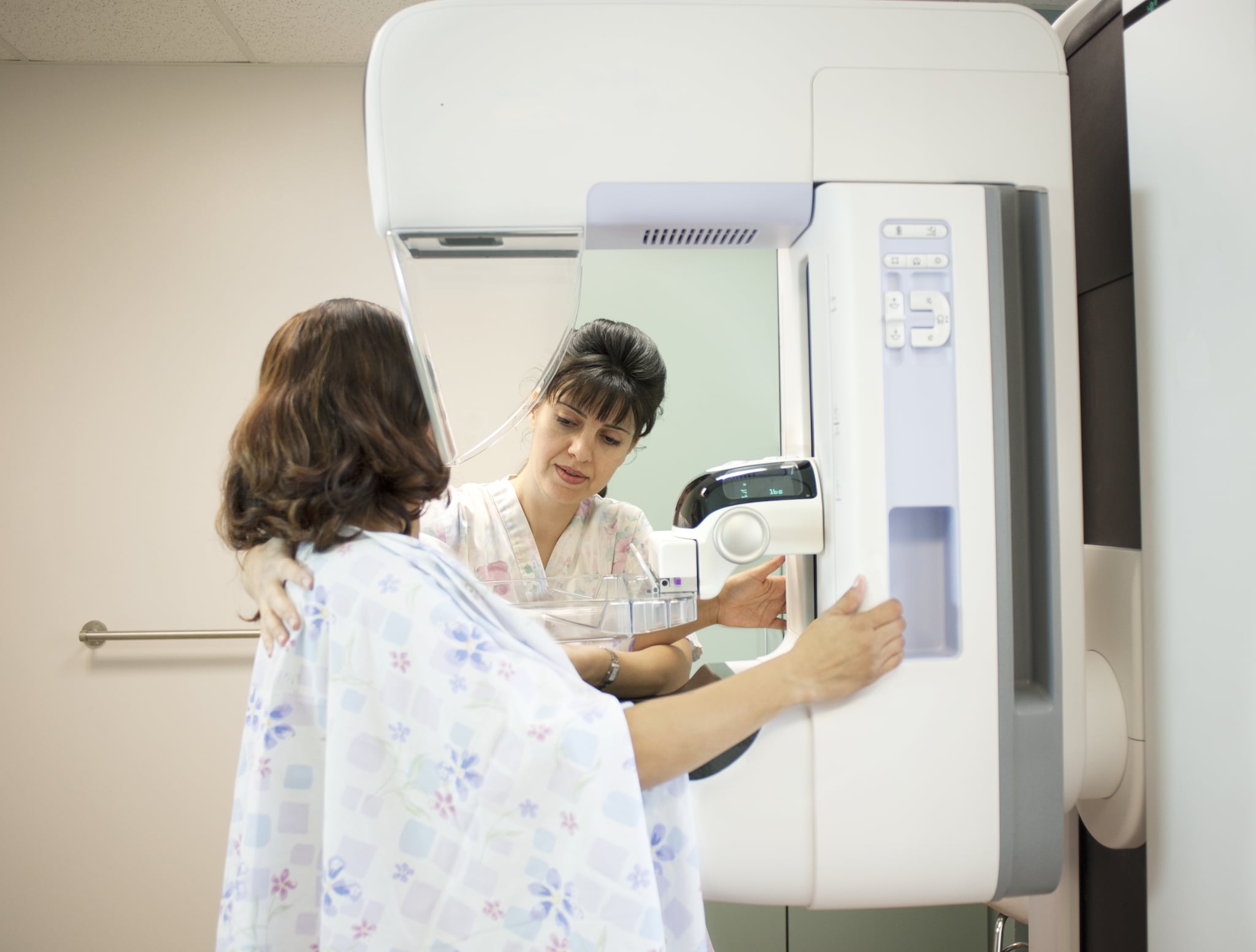
Mammograms can be crucial in detecting breast cancer early on. The examination involves using a low-dose X-ray performed by radiologists to look for changes and abnormalities in breast tissue that may signal cancer. But since breast cancer guidelines are ever-changing, you may be confused about when is the right time to move beyond self-exams and go in for your first official mammogram.
According to new draft guidelines released by the United States Preventive Services Task Force, women and those assigned female at birth should be screened for breast cancer every other year starting at age 40. Previously it was recommended that breast cancer screenings begin at age 50 and those under 50 could discuss getting screened with their healthcare provider.
“New and more inclusive science about breast cancer in people younger than 50 has enabled us to expand our prior recommendation and encourage all women to get screened in their 40s,” the task force said in a statement. “We have long known that screening for breast cancer saves lives, and the science now supports all women getting screened, every other year, starting at age 40.”
Breast cancer is the second leading cause of cancer death among women, according to the American Cancer Society. In fact, 42,000 women and 500 men in the US die each year from breast cancer, per the Centers for Disease Control and Prevention (CDC). And Black women are 40 percent more likely to die from breast cancer than White women, according to the task force.
“If all women followed our new recommendation, we could reduce mortality from breast cancer in the U.S. by about 20 percent,” Carol Mangione, MD, previous Chair of the U.S. Preventive Services Task Force and coauthor of the new recommendation, told NPR in an interview. So if you’re in your 40s or getting close to it, and you haven’t yet gotten your first mammogram, you can talk to your healthcare provider about the new guidelines and when you should get screened.
If you’re not yet close to 40, you can still be taking proactive measures to check your breasts and make sure that you know how they normally look and feel. While breast self-exams aren’t considered “effective in detecting cancer or improving the survival rate for women who have breast cancer,” the Mayo Clinic reports, “doctors believe there is value in women being familiar with their own breasts, so they understand what’s normal and promptly report changes.”
— Additional reporting by Emilia Benton
